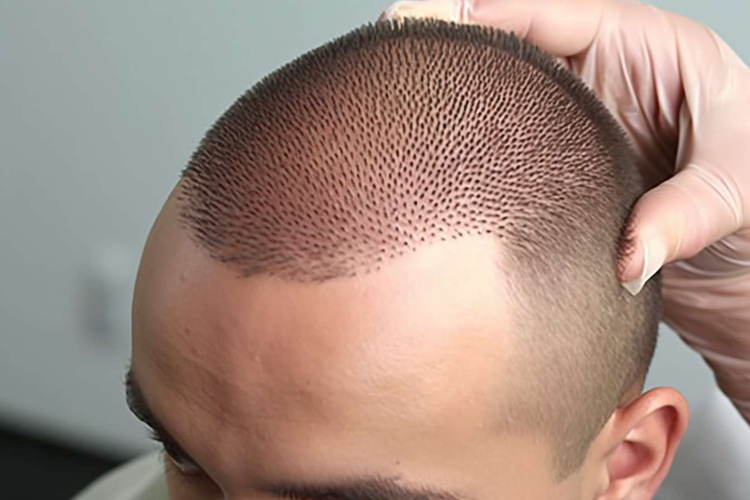Effecitve Treatments for Prostatitis
Prostatitis, a condition characterized by inflammation of the prostate gland, can significantly impact a man's quality of life. This article explores various effective treatments for prostatitis, with a particular focus on options suitable for seniors. From medication to lifestyle changes, we'll delve into the most promising approaches to manage this condition and alleviate its symptoms.

What are the main types of prostatitis?
Prostatitis is not a single condition but rather a group of disorders that affect the prostate gland. The four main types of prostatitis are:
-
Acute bacterial prostatitis: A sudden bacterial infection of the prostate gland.
-
Chronic bacterial prostatitis: A recurring bacterial infection of the prostate.
-
Chronic prostatitis/chronic pelvic pain syndrome (CP/CPPS): The most common form, characterized by pelvic pain without a clear cause.
-
Asymptomatic inflammatory prostatitis: Inflammation of the prostate without noticeable symptoms.
Understanding the specific type of prostatitis is crucial for determining the most appropriate treatment approach.
What are the common symptoms of prostatitis?
Recognizing the symptoms of prostatitis is essential for early diagnosis and treatment. Common symptoms include:
-
Frequent urination, especially at night
-
Difficulty urinating or weak urine flow
-
Pain or burning sensation during urination
-
Pain in the lower back, pelvic area, or genitals
-
Painful ejaculation
-
Flu-like symptoms (in acute bacterial prostatitis)
Seniors may experience these symptoms more severely due to age-related changes in the prostate gland. If you’re experiencing any of these symptoms, it’s important to consult a healthcare professional for proper diagnosis and treatment.
Which antibiotics are effective for bacterial prostatitis?
For bacterial forms of prostatitis, antibiotics are the primary treatment option. The choice of antibiotic depends on the specific bacteria causing the infection and the severity of the condition. Common antibiotics used to treat prostatitis include:
-
Fluoroquinolones (e.g., ciprofloxacin, levofloxacin)
-
Trimethoprim-sulfamethoxazole
-
Doxycycline
-
Macrolides (e.g., azithromycin)
Treatment duration can range from 2-4 weeks for acute bacterial prostatitis to 4-12 weeks for chronic bacterial prostatitis. Seniors may require adjusted dosages or alternative antibiotics due to potential drug interactions or reduced kidney function.
What non-antibiotic treatments are available for prostatitis?
For non-bacterial forms of prostatitis or when antibiotics alone are insufficient, several other treatment options are available:
-
Alpha-blockers: These medications help relax the muscles around the prostate and bladder neck, improving urinary symptoms.
-
Anti-inflammatory drugs: Nonsteroidal anti-inflammatory drugs (NSAIDs) can help reduce pain and inflammation associated with prostatitis.
-
5-alpha reductase inhibitors: These drugs can help shrink an enlarged prostate, which may be contributing to symptoms.
-
Pelvic floor physical therapy: Specialized exercises and techniques can help relax tense pelvic muscles and alleviate pain.
-
Prostate massage: In some cases, this technique may help relieve symptoms by draining the prostate ducts.
Are there lifestyle changes that can help manage prostatitis?
In addition to medical treatments, certain lifestyle modifications can significantly improve prostatitis symptoms and overall prostate health:
-
Dietary changes: Avoiding spicy foods, caffeine, and alcohol can help reduce irritation to the prostate.
-
Increased fluid intake: Drinking plenty of water helps flush out the urinary system and reduce the risk of infection.
-
Regular exercise: Moderate physical activity can improve circulation and reduce inflammation in the pelvic area.
-
Stress reduction: Techniques such as meditation, yoga, or deep breathing exercises can help manage stress-related symptoms.
-
Warm baths or sitz baths: Soaking in warm water can help relax pelvic muscles and provide relief from pain and discomfort.
For seniors in the United Kingdom, the National Health Service (NHS) offers various support services and resources for managing prostatitis. Local GP practices often provide access to specialized urology clinics and pelvic floor physiotherapy services.
What are the most effective treatment options for seniors with prostatitis?
When treating prostatitis in seniors, healthcare providers must consider factors such as overall health, potential drug interactions, and age-related changes in the body. Here’s a comparison of some effective treatment options for seniors:
| Treatment | Benefits | Considerations for Seniors |
|---|---|---|
| Alpha-blockers | Improve urinary symptoms | May cause dizziness or low blood pressure |
| NSAIDs | Reduce pain and inflammation | Increased risk of gastrointestinal side effects |
| Pelvic floor therapy | Non-invasive, no drug interactions | May require multiple sessions and ongoing practice |
| Prostate massage | Can provide symptom relief | May be uncomfortable or contraindicated for some patients |
| Herbal supplements (e.g., saw palmetto) | Natural option with minimal side effects | Limited scientific evidence for effectiveness |
Prices, rates, or cost estimates mentioned in this article are based on the latest available information but may change over time. Independent research is advised before making financial decisions.
It’s important to note that treatment effectiveness can vary among individuals, and a combination of approaches may be necessary for optimal symptom management. Seniors should work closely with their healthcare providers to develop a personalized treatment plan that takes into account their specific needs and health status.
In conclusion, effective treatments for prostatitis in seniors range from antibiotics and other medications to lifestyle changes and physical therapy. By understanding the various options available and working closely with healthcare professionals, seniors can find relief from prostatitis symptoms and improve their quality of life.
This article is for informational purposes only and should not be considered medical advice. Please consult a qualified healthcare professional for personalized guidance and treatment.




